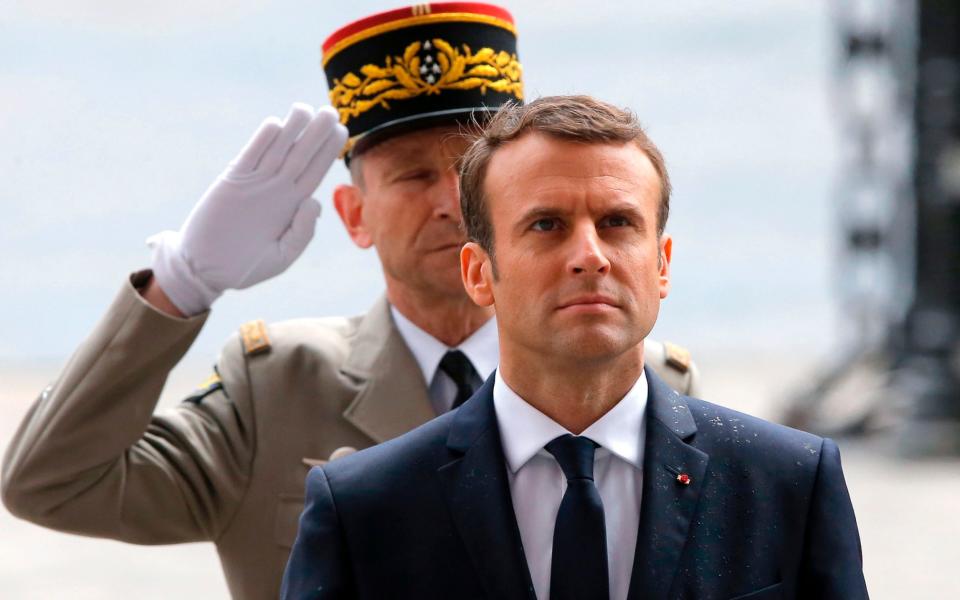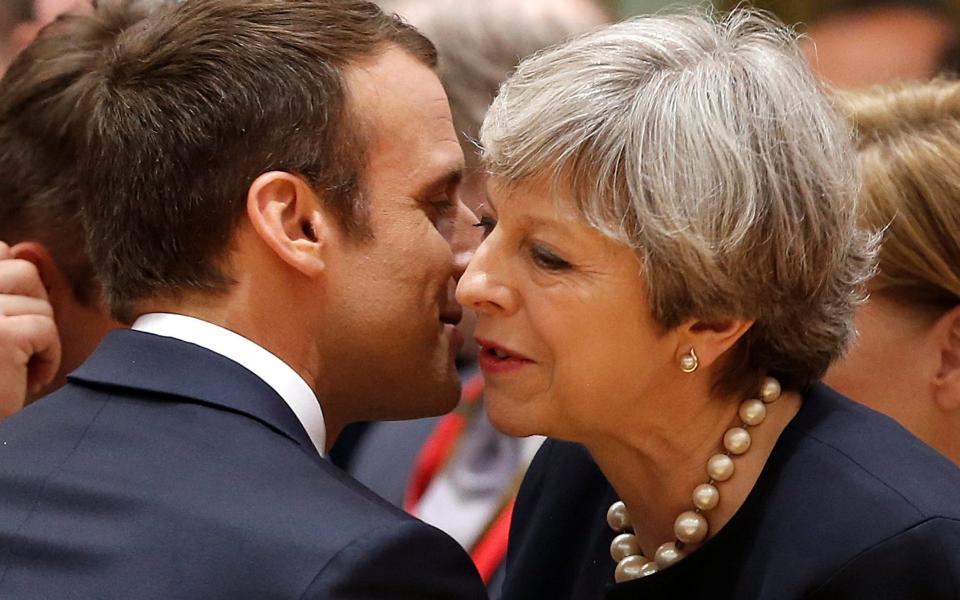Emmanuel Macron slumps in popularity ratings

The popularity of President Emmanuel Macron has slumped just two months after the youthful centrist took power, with voters unhappy about a range of his planned reforms and with his controversial refusal to talk to the press.
The 39-year-old former banker got off to a flying start at the Elysée, winning praise and admiration at home and abroad, but the shine has started to come off his fledgling administration.
The number of French people satisfied with his performance has fallen to 54 percent, down 10 percentage points from June, said the Ifop poll for the Journal du Dimanche newspaper.

Prime Minister Edouard Philippe has also lost support, dropping eight points to hit 56 percent of French people happy with him, according to the poll of 1,947 adults carried out from July 17-22.
That was the period when Mr Macron was involved in a bitter dispute over budget cuts with Pierre de Villiers, the head of the armed forces, which ended with the resignation on Wednesday of the much-respected five-star general.
Left-wing Libération newspaper said the president's "little authoritarian fit" could be a sign he was drunk on power and said it was time for him "to grow up a bit".
Those surveyed for the Ifop poll who had a poor opinion of the head of state also cited what they saw as authoritarianism and excessive attention to controlling his public image.
Mr Macron has drastically reduced interaction with the media and rarely gives interviews, and has scrapped the off-the-record chats which his Socialist predecessor François Hollande liked.
He also cancelled the television interview the president traditionally gives on the Bastille Day national holiday, with one of his aides saying his thoughts were “too complex” for such a format.

The other areas voters are concerned about include dithering by the government in recent weeks about exactly when certain tax reforms will go through, a planned major overhaul of labour laws, and changes to sick pay for civil servants.
The president faces opposition from several sectors as his government tries to find €4.5 billion (£3.9 billion) in savings by the end of the year to bring its overall deficit under 3.0 per cent of GDP as required under EU budget rules.
University staff are incensed over a planned €300 million cut to the higher education budget which comes despite promises not to reduce state spending in that sector.
Town mayors are also up in arms after the government announced plans to make €13 billion in savings on local government budgets by 2022.

 Yahoo News
Yahoo News 
